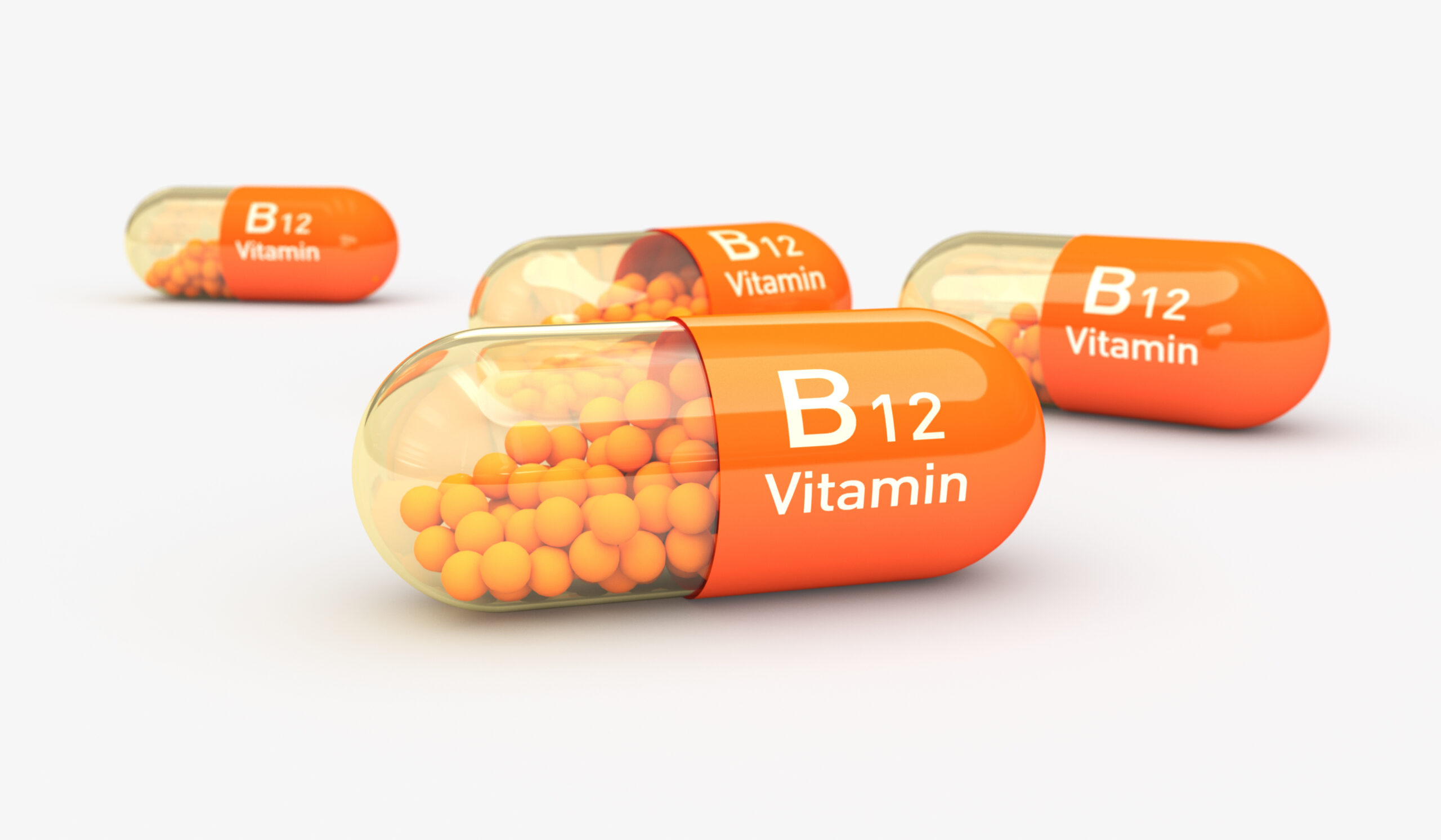The Comprehensive Guide to the Benefits of Vitamin B12
Introduction
Vitamin B12, also known as cobalamin, is a water-soluble vitamin that plays a critical role in maintaining good health. It is essential for various bodily functions, and its benefits extend far beyond simply preventing anemia. In this comprehensive guide, we will explore the multifaceted advantages of vitamin B12, ranging from its role in energy production to its impact on neurological health, as well as its importance for mood regulation and overall well-being.
Energy Production
One of the most well-known benefits of vitamin B12 is its role in energy production. It is a key component of the energy-producing pathways in the body, helping to convert the food we eat into energy that our cells can use. A deficiency in vitamin B12 can lead to fatigue and weakness, as the body struggles to produce sufficient energy.
Red Blood Cell Formation
Vitamin B12 is crucial for the production of red blood cells. Red blood cells are responsible for carrying oxygen from the lungs to various tissues and organs throughout the body. A deficiency in B12 can lead to a form of anemia called megaloblastic anemia, where red blood cells are larger than normal and unable to function properly, resulting in reduced oxygen delivery to cells.
Nervous System Health
Vitamin B12 is essential for maintaining a healthy nervous system. It plays a role in the formation of myelin, a protective sheath that surrounds nerve fibers. Myelin is crucial for nerve signal transmission, and a deficiency in vitamin B12 can lead to neurological symptoms, including numbness, tingling, and balance problems.
Mood Regulation
Vitamin B12 is involved in mood regulation, and its deficiency has been linked to mood disorders like depression and anxiety. It plays a role in the synthesis of neurotransmitters, such as serotonin and dopamine, which are essential for emotional well-being. Adequate B12 levels can help improve mood and reduce the risk of mood-related disorders.
Cognitive Function
Vitamin B12 is crucial for cognitive function, particularly in older adults. It is involved in memory, concentration, and mental clarity. Research suggests that maintaining adequate B12 levels may help reduce the risk of cognitive decline and conditions like Alzheimer’s disease.
Heart Health
Vitamin B12 is important for heart health. It helps regulate homocysteine levels in the blood. Elevated homocysteine levels are associated with an increased risk of heart disease, stroke, and other cardiovascular problems. Adequate B12 intake can help keep homocysteine levels in check and reduce the risk of heart-related issues.
Digestive Health
Vitamin B12 is essential for maintaining a healthy digestive system. It supports the production of stomach acid, which is necessary for the absorption of essential nutrients, including B12 itself. A deficiency in B12 can lead to digestive problems and hinder the absorption of other nutrients.
Skin Health
Vitamin B12 plays a role in maintaining healthy skin. It is involved in cell reproduction and renewal, helping to keep the skin looking fresh and vibrant. B12 is also beneficial for those with skin conditions like eczema and psoriasis, as it can alleviate symptoms and promote healing.
Eye Health
Vitamin B12 supports eye health by helping to prevent age-related macular degeneration (AMD), a leading cause of vision loss in older adults. Adequate B12 intake, along with other antioxidants, can help protect the retina and reduce the risk of AMD.
Bone Health
Vitamin B12 plays a role in bone health by contributing to the formation of bone cells and the regulation of bone mineral density. Maintaining sufficient B12 levels can help reduce the risk of osteoporosis and fractures.
Healthy Pregnancy
Pregnant women need an adequate intake of vitamin B12 to support fetal development. B12 is necessary for proper brain and nervous system development in the developing baby. It can also help prevent birth defects and complications during pregnancy.
Reduced Risk of Birth Defects
Vitamin B12 is crucial for preventing birth defects, such as neural tube defects in newborns. Adequate B12 intake during pregnancy can help reduce the risk of these serious and potentially life-threatening conditions.
Alleviation of Menstrual Symptoms
For women, vitamin B12 may help alleviate menstrual symptoms such as mood swings, bloating, and fatigue. It is involved in hormonal regulation and may reduce the severity of premenstrual symptoms.
Cancer Prevention
While more research is needed, some studies suggest that vitamin B12 may play a role in preventing certain types of cancer. It is believed to help protect DNA from damage and reduce the risk of mutations that can lead to cancer.
Enhanced Physical Endurance
Athletes and those engaged in regular physical activity may benefit from vitamin B12 supplementation. It can improve endurance, reduce fatigue, and support overall physical performance. B12 supports the body’s adaptation to physical stress and exercise.
Respiratory Health
Vitamin B12 is necessary for respiratory health and can help reduce the risk of respiratory conditions like asthma. It plays a role in lung function and oxygen transport, making it crucial for overall respiratory well-being.
Alleviation of Allergy Symptoms
Vitamin B12 may help reduce the severity of allergy symptoms, such as sneezing, itching, and congestion. It can promote a healthier immune response to allergens and reduce allergic reactions.
Skin Aging and UV Protection
Vitamin B12’s antioxidant properties help protect the skin from damage caused by ultraviolet (UV) radiation. It can reduce the risk of premature skin aging, including wrinkles and age spots, due to sun exposure.
Dental Health
Vitamin B12 is essential for maintaining healthy teeth and oral tissues. It supports the health of the gums and the maintenance of strong teeth, reducing the risk of dental problems.
Protection Against Lead Toxicity
In environments with lead exposure, vitamin B12 may provide some protection against lead toxicity. It can help reduce the absorption of lead in the gut and promote its excretion from the body.
Hormonal Balance
Vitamin B12 plays a role in hormonal balance in the body, regulating sex hormones, thyroid hormones, and insulin. Maintaining hormonal balance is essential for overall health and well-being.
Immune Support for All Ages
The immune-boosting properties of vitamin B12 are beneficial for individuals of all ages, from infants to the elderly. A well-functioning immune system is crucial for fighting off infections and maintaining good health.
Reduced Risk of Cataracts
Cataracts are a common eye condition that can lead to vision impairment. Higher vitamin B12 intake has been linked to a reduced risk of developing cataracts, making it an important nutrient for eye health.
Skin Conditions Management
Vitamin B12’s anti-inflammatory and antioxidant properties make it a valuable tool in managing skin conditions like acne and rosacea. It can reduce redness and inflammation, promoting clearer skin.
Improved Recovery After Exercise
For athletes and those who engage in regular exercise, vitamin B12 can enhance post-workout recovery. It reduces muscle soreness, supports the healing of micro-injuries, and aids in overall muscle repair.
Prevention of Osteoporosis
Vitamin B12 supports bone health by contributing to the formation of bone cells and the regulation of bone mineral density. It helps reduce the risk of osteoporosis and fractures in older adults.
Enhanced Sleep Quality
Vitamin B12 has been associated with improved sleep quality and the reduction of sleep disturbances. Adequate sleep is essential for overall health and well-being.
Liver Health
The liver plays a crucial role in detoxifying the body and metabolizing nutrients. Vitamin B12 can support liver health by promoting detoxification processes and protecting liver cells from damage.
Alleviation of Osteoarthritis Symptoms
For individuals with osteoarthritis, vitamin B12 may help alleviate some of the symptoms, including joint pain and stiffness. Its anti-inflammatory properties can contribute to better joint health.
Vision Protection
In addition to its benefits for eye health, vitamin B12 may offer protection against other vision-related conditions, such as glaucoma and diabetic retinopathy. Its antioxidant properties can help safeguard the eyes from damage.
Alleviation of Morning Sickness
During pregnancy, some women experience morning sickness, characterized by nausea and vomiting. Vitamin B12 supplementation may help alleviate these symptoms, improving the overall well-being of expectant mothers.
Dental Health
Vitamin B12’s role in maintaining oral health extends to the health of your teeth and the surrounding tissues. Healthy gums and oral tissues are essential for preventing dental problems.
Stress Reduction During Pregnancy
Pregnancy can be a physically and emotionally taxing period for women. Vitamin B12 may help reduce stress levels during pregnancy and support overall maternal well-being.
Skin Health During Pregnancy
Expectant mothers can benefit from vitamin B12’s role in maintaining healthy skin. It supports skin renewal and can help reduce the risk of skin problems during pregnancy.
Bone Health During Pregnancy
For pregnant women, maintaining strong bones is crucial. Vitamin B12 supports bone health and can contribute to the development of a healthy skeletal system in the developing baby.
Brain Development During Pregnancy
Vitamin B12 plays a vital role in the brain development of the developing baby during pregnancy. Adequate B12 intake is necessary for the proper formation of neural tissue and cognitive function.
Hormonal Balance During Menopause
For women going through menopause, maintaining hormonal balance is essential. Vitamin B12 may help regulate hormonal changes and alleviate some of the symptoms associated with menopause.
Dental Health During Menopause
Oral health is important at any age, including during menopause. Vitamin B12 supports dental health and the maintenance of strong teeth and oral tissues.
Skin Health During Menopause
Vitamin B12’s role in maintaining healthy skin is important during menopause. It supports skin renewal and can help reduce the risk of skin problems during this life stage.
Bone Health During Menopause
Osteoporosis is a concern for many women during menopause. Vitamin B12 supports bone health, reducing the risk of osteoporosis and fractures.
Enhanced Recovery After Surgery
Following surgery, the body requires additional nutrients for optimal healing. Vitamin B12 is crucial during this time, as it supports tissue repair, immune function, and overall recovery.
Reduced Risk of Cleft Lip and Palate
During pregnancy, vitamin B12 is crucial for proper fetal development. Adequate B12 intake can reduce the risk of birth defects, such as cleft lip and palate.
Hair Health During Pregnancy
Expectant mothers may experience changes in hair health during pregnancy. Vitamin B12 supports healthy hair growth and can help maintain strong and vibrant hair.
Skin Health During Menopause
Skin changes are common during menopause. Vitamin B12’s role in maintaining healthy skin can help reduce the risk of skin problems and promote a vibrant complexion.
Hair Health During Menopause
Changes in hair health are also common during menopause. Vitamin B12 supports hair health, contributing to strong and healthy hair.
Dental Health During Menopause
Oral health is important at any age, including during menopause. Vitamin B12 supports dental health, reducing the risk of dental problems.
Skin Health During Aging
As individuals age, maintaining healthy skin becomes increasingly important. Vitamin B12’s role in skin renewal and its antioxidant properties can help reduce the signs of aging.
Hair Health During Aging
Maintaining strong and healthy hair becomes more challenging with age. Vitamin B12 supports hair health and can help prevent hair thinning and loss.
Cognitive Health During Aging
As individuals age, cognitive health becomes a top priority. Vitamin B12 is essential for brain health and may help reduce the risk of cognitive decline in older adults.
Overall Well-Being and Quality of Life
In the grand scheme of things, vitamin B12 contributes to a sense of well-being and an improved quality of life. By addressing various health concerns and promoting overall vitality, it plays a significant role in enhancing one’s life.
In conclusion
,vitamin B12 is a remarkable nutrient with a wide range of health benefits. Its role in energy production, red blood cell formation, and neurological health makes it a critical component of a healthy diet. Whether you seek to prevent anemia, improve your mood, or support your cognitive function, incorporating vitamin B12-rich foods or supplements into your daily routine is a wise choice. However, it’s essential to remember that the best way to obtain these benefits is through a balanced diet and, when necessary, under the guidance of a healthcare professional.

